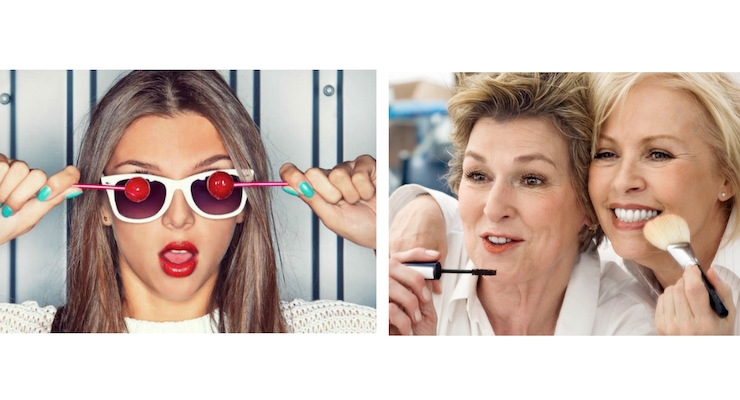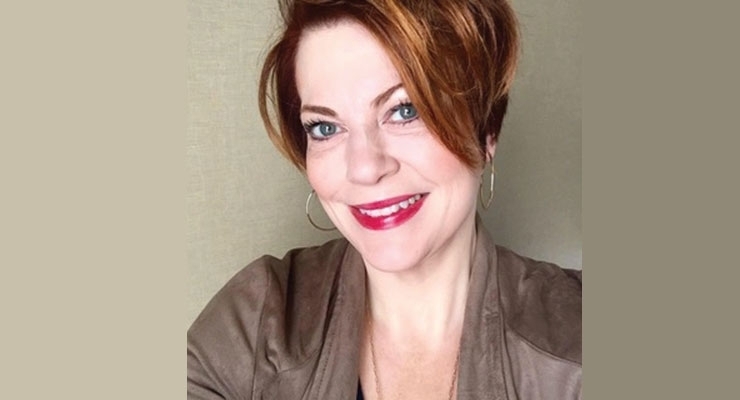Elle Morris, CEO, HMS Design08.02.18
Beauty, like every other industry, has to evolve to meet its consumer’s changing needs. Today’s beauty consumer bridges several generations, so it’s important to clearly understand the differences in beauty perceptions between Baby Boomers, Millennials and Gen Z.
Baby Boomers Are A Dichotomy When It Comes to Beauty
Classified as ages 54-72, this generation of women bucked “the system.” They worshipped the sun, danced under the stars, and paved the way for future generations.
They shunned society’s perceptions of traditional female roles and beauty; making pixie cuts the rage, growing their hair down to their waists; making the mini skirt acceptable but also wearing jeans/pants; they’ve worn outrageous amounts of makeup and no makeup at all. They redefined beauty and didn’t let anyone define it for them.
Boomers are a bit of a dichotomy when it comes to beauty. They love efficacious skincare – products that make their skin look and feel good and will seek products that bring results versus make them “feel pretty.”
They created the demand for injectables – Botox, Dysport, Juvederm and Restalyne. Seeing results motivates them and creates demand for product.
According to a blog post by Stella Rising, 52% of Boomer women say that they used beauty products to look good.
Interestingly, only 38% of them were interested in anti-aging claims while 60% of them look for products with moisturizing and hydrating properties. The best way to encourage trial amongst this group is through free sampling.
Millennials are Savvy, Frugal & Cynical
The generation that is seemingly the most fascinating are defined as those age 23 – 38 and they are savvy, frugal and cynical. They lived through the 2008 economic crisis, the 9/11 attacks, the Enron scandal, housing prices being out of reach, and felt the impact of global warming.
Millennials currently buy less than older generations do because they don’t have the money to… yet.
Because of what they witnessed in the economic collapse, this generation is cautious with money. They look for products that are effective and a good deal.
This generation has made the rise of private label products possible in beauty, since price is a key driver for Millennials (they are more likely to visit multiple stores and use coupon codes than previous generations).
They are the first truly digital generation – their “computer” was an iPod and they created Facebook.
Millennials research online before buying a beauty product, though they are still more likely to purchase a product in-store (they expect the in-store experience to match their on-line experience). Ulta and Sephora have found the right balance of an on-line experience that crosses into stores with beauty bars, in-store salons, and apps.
Social media has a large impact on their purchases; they author blog posts and chat about products on their pages.
Millennials are the “selfie” generation so makeup is very important to them. L’Oréal says that Millennials have made makeup the fastest-growing category globally.
L’Oréal, Estée Lauder and MAC have all created apps that speak to this generation and encourage interface with their brands.
Millennials buy more natural beauty products that are efficacious versus traditional chemically heavy products that previous generations have demanded for anti-aging.
Gen Z -- The First Completely Digital Generation
The first completely digital generation, between ages of 8 and 22, this group has more racial diversity than any previous generation. They don’t have the same definition of family as their older counterparts do; they have single parents and same sex parents.
They had smartphones as their first computers and use them for everything from shopping to entertainment to their personal hand-held TV. They live their lives on-line and prefer Instagram and Snapchat.
To gain their attention, you’d better grab it with a photo, in five words or less and in eight seconds. This generation is pragmatic and are planners.
They are risk-averse and create entrepreneurial opportunities (like Nick D’Aloisio who sold his app, Summly to Yahoo for $30 million last year or Mark Bao who has founded over 10 tech startups before age 20). This is the generation that created the most wealth to date.
Gen Z has already broken the gender barrier; they see gender more fluidly than those before them. According to a recent study by The Innovation Group, 56% of Gen Z state that they ignore gender specific product labels.
Social media is covered with young men that have mastered makeup artistry and share their transformation tips and tricks.
Cover Girl hired James Charles to be their first male brand ambassador. Maybelline hired Manny MUA for a new mascara campaign. These brands are tapping male experts to help normalize men wearing makeup—a whole new platform of consumers for Western beauty brands.
Gen Z has witnessed the impact of waste, so they seek bio-degradable packaging and eco-friendly cosmetics. Gen Z is also invested in virtual reality (VR). L’Oréal has already partnered with Samsung for a VR experience with its NYX brand targeting Gen Z consumers.
Different Generations Seek Different Beauty Experiences
These three generations see the world differently and seek different experiences from their beauty brands.
The beauty industry has a healthy future as long as it understands the critical nature of all of its consumer segments.
Fusing the on-line experience with the in-store experience is vital; understanding that racial and gender barriers are falling to the wayside and that free samples are critical are all imperative to keep brands relevant with consumers of all generations.
Read Part 2: Gen X
What about Generation X? Elle Morris continues the discussion in the Expert's Opinion column, Evolving Perspectives of Beauty – Part 2: Gen X






























